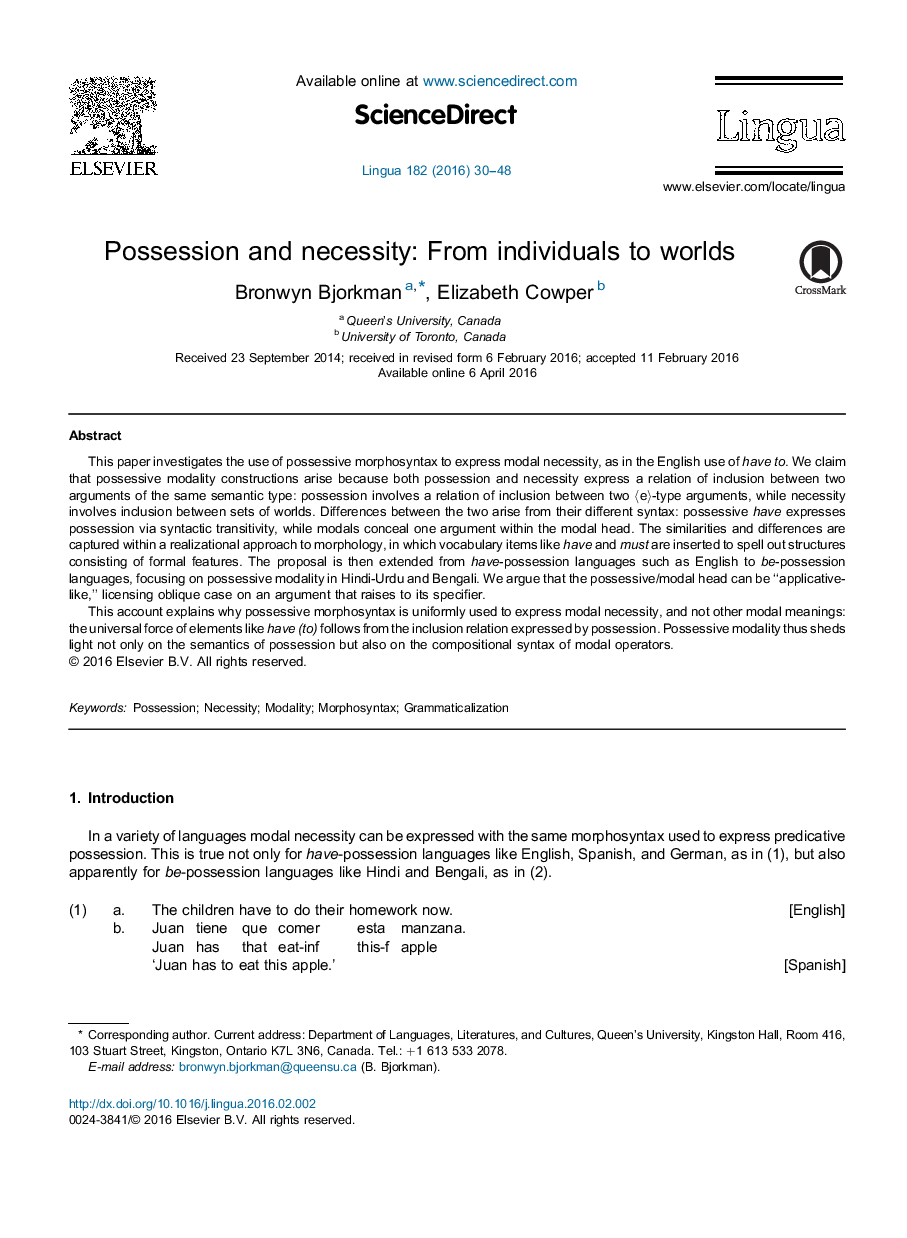| کد مقاله | کد نشریه | سال انتشار | مقاله انگلیسی | نسخه تمام متن |
|---|---|---|---|---|
| 5043033 | 1475033 | 2016 | 19 صفحه PDF | دانلود رایگان |
- The relation between clausal possession and modal necessity is explored.
- Possession and necessity use the same relation but between different semantic types.
- This connection holds in both have-possession and be-possession languages.
- The semantics of modality sheds light on the core semantics of possession.
- Grammaticalization can apply to features as well as to lexical items.
This paper investigates the use of possessive morphosyntax to express modal necessity, as in the English use of have to. We claim that possessive modality constructions arise because both possession and necessity express a relation of inclusion between two arguments of the same semantic type: possession involves a relation of inclusion between two ãeã-type arguments, while necessity involves inclusion between sets of worlds. Differences between the two arise from their different syntax: possessive have expresses possession via syntactic transitivity, while modals conceal one argument within the modal head. The similarities and differences are captured within a realizational approach to morphology, in which vocabulary items like have and must are inserted to spell out structures consisting of formal features. The proposal is then extended from have-possession languages such as English to be-possession languages, focusing on possessive modality in Hindi-Urdu and Bengali. We argue that the possessive/modal head can be “applicative-like,” licensing oblique case on an argument that raises to its specifier.This account explains why possessive morphosyntax is uniformly used to express modal necessity, and not other modal meanings: the universal force of elements like have (to) follows from the inclusion relation expressed by possession. Possessive modality thus sheds light not only on the semantics of possession but also on the compositional syntax of modal operators.
Journal: Lingua - Volume 182, October 2016, Pages 30-48
